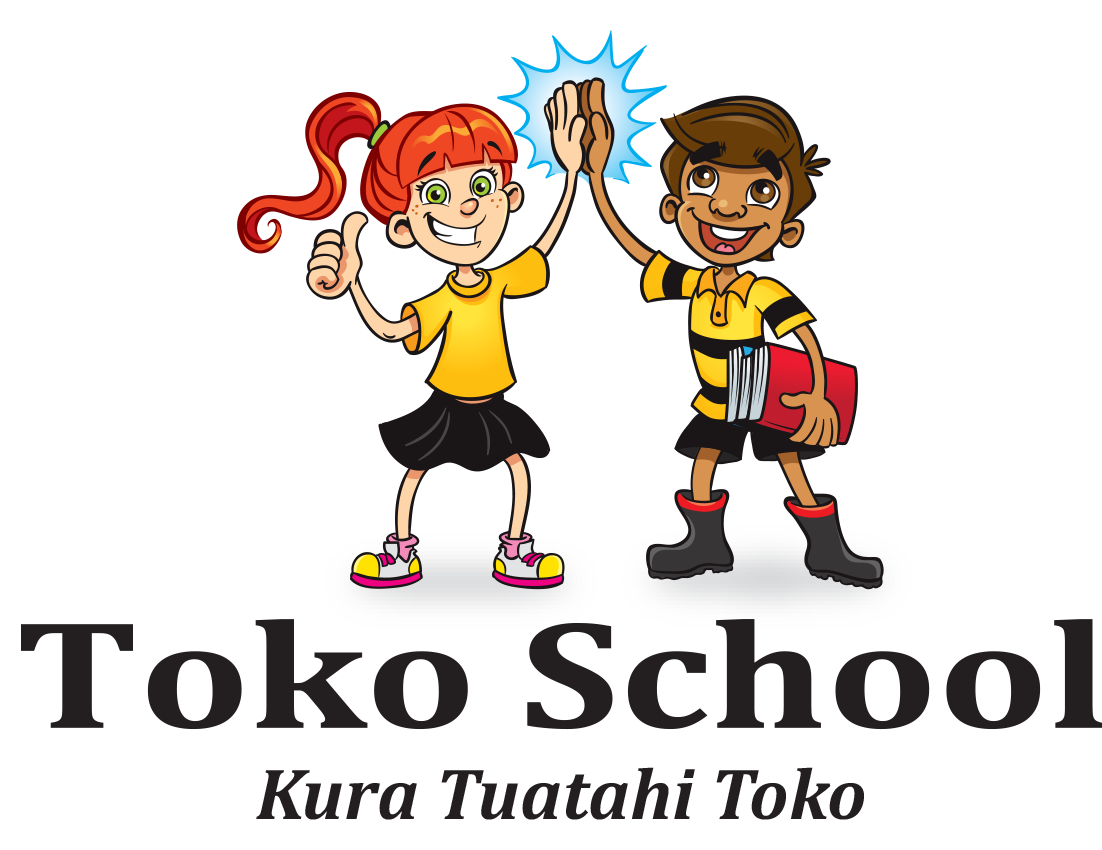HOMEWORK GUIDELINES FOR TOKO SCHOOL
In Years 5 – 8 home work could be essential learning tasks (spelling, home reading, maths etc), completion of unfinished work, research into new learning occurring in the classroom, co-creating information in online forums, discussion of current events or mathematics / IXL, maintenance work using mathletics. Homework should not be onerous. It should add to the classroom program. Many children have many after school activities already and we strongly support children following their passions and interests outside of school. We are also great encouragers of children playing and having adventures.
At this level students need to continue to develop their accuracy, fluency and independence in reading and in using texts to support their learning. It is expected that if children do not bring a school text home that they can select another to read at home. It would be great if all students had a novel or other suitable material to read for a sustained period of time. Classes visit the school library each week so they have regular opportunities to issue new books
In New Entrants/Year 2 homework will consist of saying a poem/nursery rhyme, learning sounds and then when your child is ready tricky words and a home reader they have read as part of their structured literacy lesson. It may take time for your child to bring home a home reader they have had during structured literacy lessons as they need to be taught the sounds (phonemes) and the letters that represent them (graphemes) that they will see in the text. Once they know some of these sounds they will be able to start learning to sound them out and blend them to read words. While they are learning these sounds some weeks they may bring home a wordless home reader, which gives them a chance to create their own story. They may also bring a book home that has sounds for them to practise. Number identification, number before and after may also be part of your child’s homework.
It is encouraged that you read fiction or non-fiction texts to your child daily so they can develop their language, comprehension and knowledge of the world through these texts. You can discuss vocabulary, plot and characters or with non-fiction texts discuss different topics of interest to your child.
Here are some key shared literacy activities that you can do with your child:
-Read picture books and non-fiction books based on your child’s interests.
-Have fun with the language, especially with rhyming books – e.g., Dr Seuss.
-To support fine motor skills, engage in drawing, baking, lego and puzzles.
-Play word games, such as I Spy with a beginning sound or a word that rhymes with another word.
Home readers, once sent home, may come home many times. Re-reading the same books over and over again is encouraged and assists with children developing reading confidence and reading fluency.
In Years 2 – 4, home work is in the form of reading a book/poem sent home, learning basic words and or maths basic facts. Parental interest and involvement in this activity is of great value to your child; reinforcing what they have read during the day and helping to establish necessary homework routines. Homework should not be onerous. It should add to the classroom program. Many children have many after school activities already and we strongly support children following their passions and interests outside of school. We are also great encouragers of children playing and having adventures.
Home readers may be sent home many times with the whole book taking a few days to complete the guided reading programme in the classroom. Children may also choose books from their best fit box. Re-reading the same books over again and again is encouraged and assists with children developing reading confidence and reading fluency. Please don’t be alarmed when the same book comes home it is an important part of our reading programme.
Why Reading the Same Book Repeatedly is Good for Kids
 |
 |
 |
